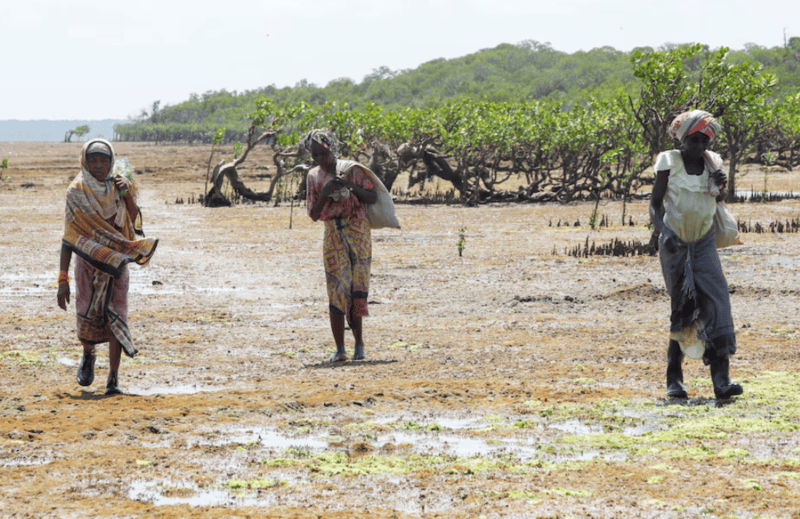After missing school due to extreme heat, African children push for climate action

More than 40 million children were kept out of classrooms this year, from Asia to Africa, due to extreme heat, which scientists say has been made worse and more frequent by climate change.
Children from East Africa, where heatwaves and floods have shuttered schools in recent months, are pushing for world leaders to protect their education - and their future - at the United Nations COP29 climate summit in Azerbaijan.
Siama, 17, from South Sudan, missed two weeks of school in April when temperatures surged to 45 degrees Celsius (113 Fahrenheit).
More To Read
- Over 600 million children exposed to violence at home, UNICEF warns
- What’s at stake in the COP30 negotiations?
- UNICEF warns over 400 million children live in extreme poverty as progress stalls
- Gaza: Displaced Palestinians dealing with the ‘death of dignity’, warns UNICEF
- Major global emitters off track, no country strong enough to meet climate targets - report
- Violence is a normal part of life for many young children: Study traces the mental health impacts
"Our country is a developing country so we do not have climate-resilient buildings ... and do not have ACs in school," she said.
More than 40 million children were kept out of classrooms this year, from Asia to Africa, due to extreme heat, which scientists say has been made worse and more frequent by climate change.
Naomi, 14, also struggled with South Sudan's school closures. "This really affected me because this year I am sitting for my national exams," she said.
At home, "we were not able to concentrate because it was hot, the temperatures were really high, you have to focus more on reducing the temperature of your body by going to bathe every two hours".
In Somalia, Nafiso, 16, often can't sleep at night, thinking about her future under climate change.
"My father - he is a farmer. When there is a lot of heat, it becomes a lot of drought. When there is a lot of rain, it is difficult to get the food."
Sometimes she does not have enough food to eat three times a day. Floods, too, have at times prevented her from getting to school.
"This is really making us worried how will the future be if there is no action being taken, if there is no climate finance to create climate-resilient schools in the country," Naomi said.
Top Stories Today













































